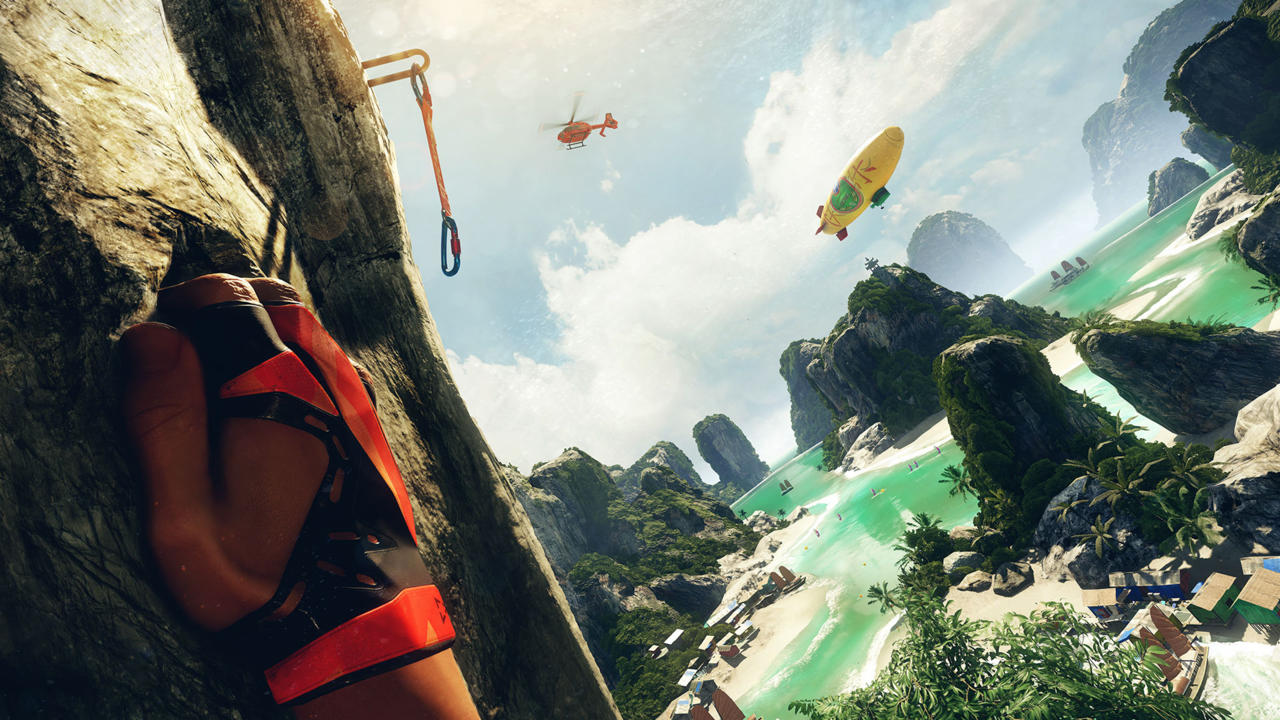VR Exclusives Are Good, Oculus Exec Says After Valve Boss Says They're Bad
Oculus Head of Content Jason Rubin says funding exclusive games is what's making virtual reality grow.
Valve boss Gabe Newell recently said he doesn't think VR exclusives are "a good idea for customers or developers"--his company worked with HTC to release the Vive headset. Now, Oculus head of content Jason Rubin said in an interview with GamesIndustry.biz that his company's policy on exclusives is good for virtual reality in general.
Rubin says that Oculus wants to kickstart the VR development community, which might feel a little wary of creating games for a small consumer base. He says that Oculus doesn't want to wait a decade for VR development to get where it wants, so it funds games to help get there faster--in exchange, it wants the games to be exclusive to its platform for at least a period of time.
"The average gamer is now aware of $100 million games," Rubin said. "And while we certainly cannot build a $100 million game that takes four years, in the year we've had dev kits, we can try to get closer to that by funding significant leaps beyond the financial certainty that a developer would need to have to do it on their own.
"As a developer looks at a multi-million dollar production in VR right now, they say there's no way that will earn its money back in any reasonable amount of time, so instead I'll go make a non-VR PC game of that scale if I want to because that's a better bet. We don't like that. We don't want it to be $500,000 games this year, million dollar games next year, two million dollar...and take decades or at least a decade to build itself to the point where you can afford bigger games.
"So what Oculus has said is, 'Why don't we throw more money into the ecosystem than is justified by the consumer base,' which will lead to a consumer base that's larger, which will leave that second generation of developers to say, 'Hey, let's go build these games because now the consumers are there, and kickstart that decade long process in a much shorter length of time.' And, to do that, we have put huge amounts of money into the ecosystem, more than any of our competitors."

Rubin also made a point to mention that Oculus isn't looking to have control over any intellectual property or make the games exclusive forever.
"So if the first game barely makes its money back, the second game can be profitable because the consumer's there," Rubin said. "That's theirs to do on their own on any platform they want. And in a lot of cases, we're looking at software that's in process, where the developers are running to the end of their logical stream of cash and they come to us and they say, 'I want to put this in your store,' and we say, 'That's awesome. However, we can tell it's kind of unfinished.' And they're like, 'We can't finish it. We don't have the money to finish it.' And we say, 'Well, how about we give you a little extra to finish it and in exchange you bring it out as an exclusive in our store for a limited amount of time, continue to develop for all platforms, and then put it out on all platforms?' The better game gets to all consumers in that case. And those are the deals we're making. And that, to me, makes a lot more sense than just let this thing work itself out over a decade."
Even first-party games, like Crytek's The Climb, could eventually see life on other platforms in sequels. Rubin talked about how Oculus worked alongside Crytek to fully fund and conceptualize its mountain-climbing VR game.
"Having said that, they own The Climb IP," Rubin said. "The Climb 2 can come out on any console, any PC, any anything, anywhere. We don't own that."
Rubin also talked about Oculus's shipping issues and how the company is going to "do it the right way this time" with its hand-tracking Touch controllers. You can read the full interview at GamesIndustry.biz.
With the Rift's issues, the company ended up covering shipping costs on all preorders; however, some users have still not received their headset.
Got a news tip or want to contact us directly? Email news@gamespot.com
Join the conversation